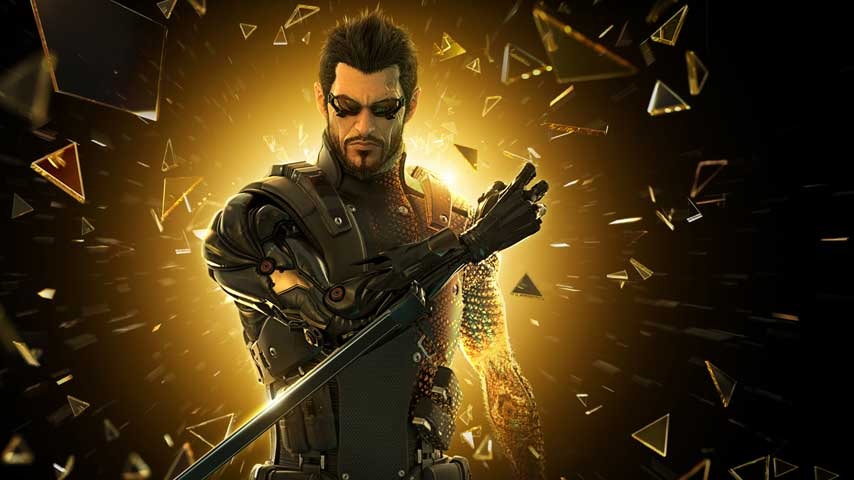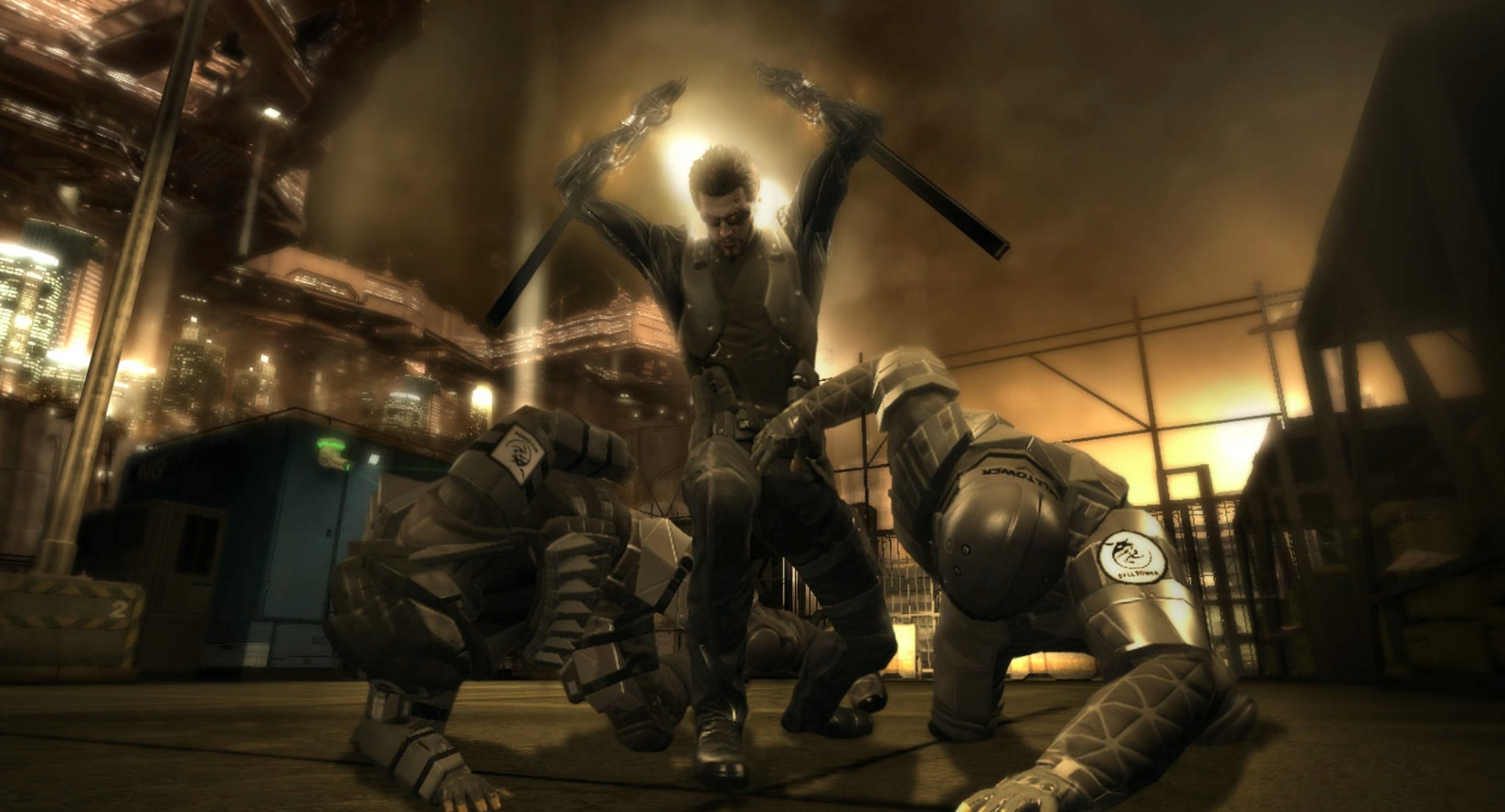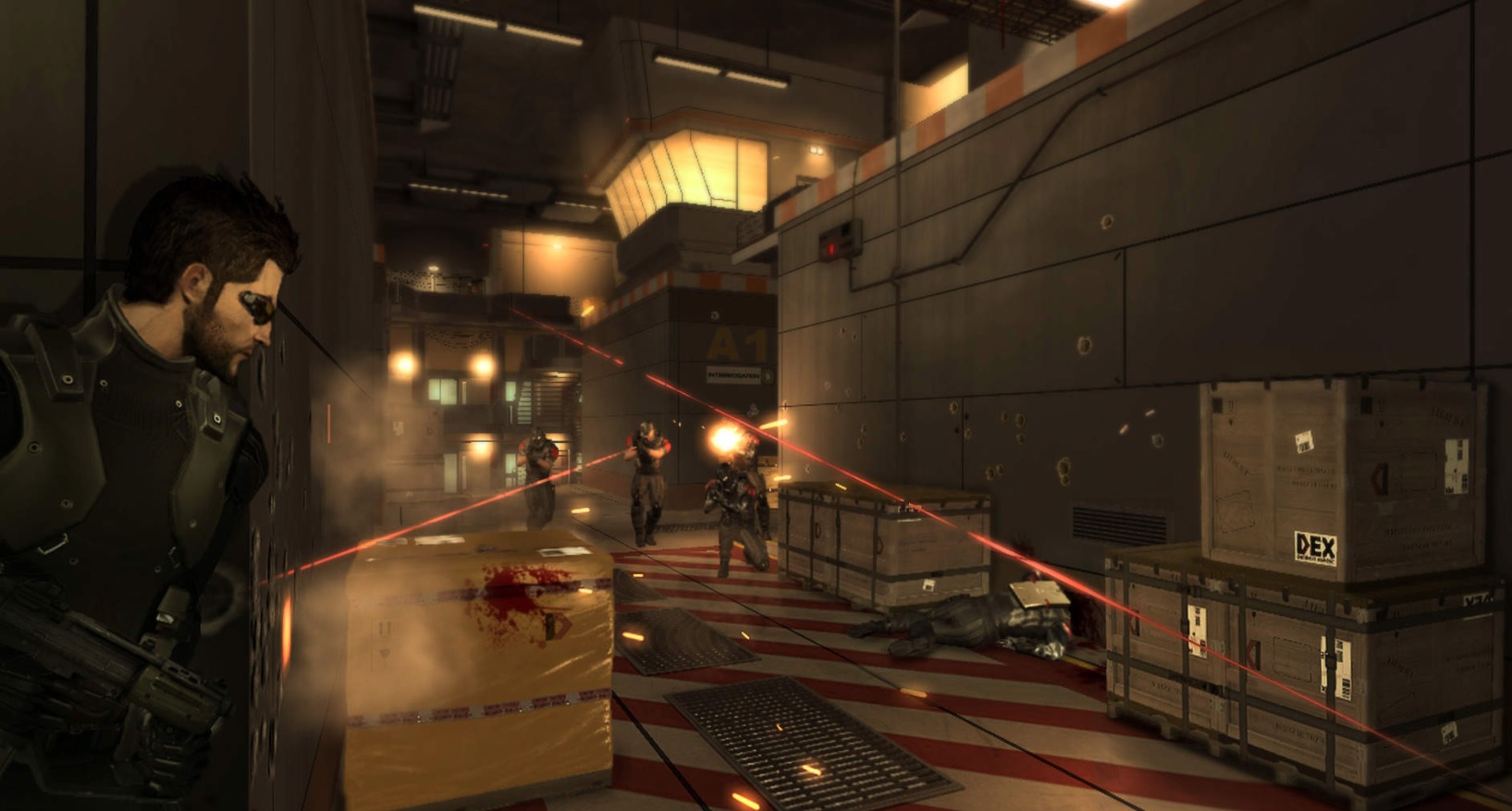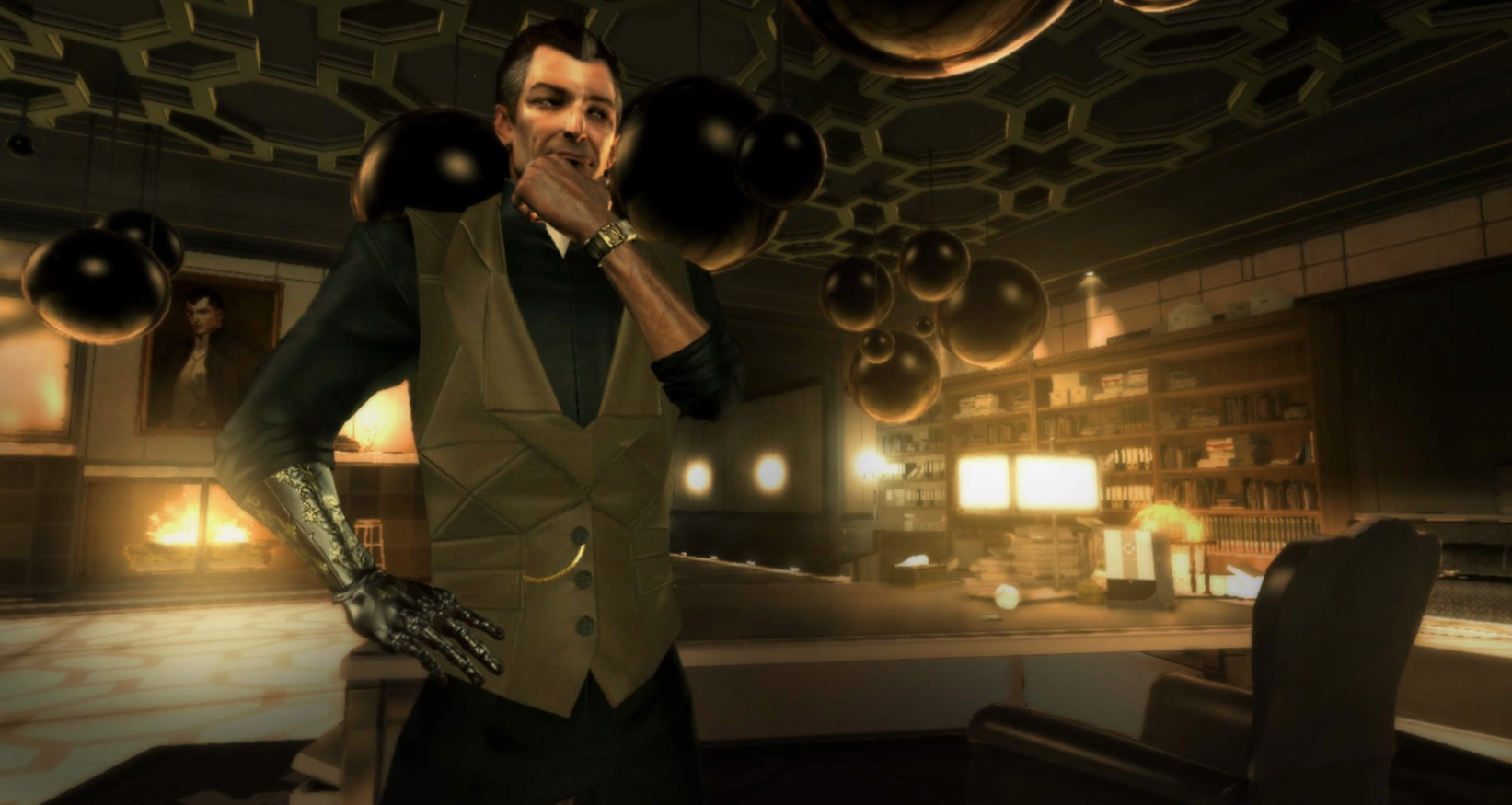10 years later, Deus Ex Human Revolution is still the cyberpunk game to play
Deus Ex: Human Revolution is near-future cyberpunk done right

It’s been a decade since Deus Ex: Human Revolution was released and brought with it a much-anticipated return and reboot of the series that arguably defined what ‘immersive sims’ could be. And while its sequel Deus Ex: Mankind Divided built upon the rebooted formula, Human Revolution remains one of the best cyberpunk games to play today, especially after the disappointment of Cyberpunk 2077.
Sadly, the Deus Ex series now seems to be on hiatus. Publisher Square Enix had planned for there to be a whole “Deus Ex universe” of games and supporting media, but after Mankind Divided that never really happened.
- Here's what you need to know about Splitgate
- Here are the best games of 2021 so far
- Plus: Starfield unlisted trailers show off stellar locations — watch them right now
I am hoping that Deus Ex will return, as I’ve enjoyed all four main games in the series, even the less-than-impressive Invisible War. The blend of conspiracy-heavy stories, human augmentation, interesting settings, and an open-ended approach to missions and problems is an utter joy.
And while it may not have the deep systems of games like Metal Gear Solid V: The Phantom Pain or the sheer flexibility of the Dishonored games, Human Revolution is still wonderful for a decade-old immersive sim.
I asked for this

While player character Adam Jensen may not have asked for augmented limbs after he was critically injured in an attack on his employer Sarif Industries, a game that effectively reboots the magnificent original Deus Ex was something I very much asked for.
It was a risky move by developer Eidos Montreal, given it was looking to develop a game that was very much trying to be a modernized version of arguably one of the best games of all time. Deus Ex offered a huge amount of systems and flexibility to approaching missions in levels that felt huge for a game from 2000.
With modern graphics, I was worried that Human Revolution would fail to deliver the scale of the original game. And it didn’t; there was no skills system and missions took place in smaller spaces. But that actually worked in Human Revolution’s favor, offering smartly designed environments with all manner of things to look at, uncover, hack and blow up.
And like the original game, you could approach objectives in a variety of ways, including not killing any enemies in the entire game. You could sneak, snipe, tranquilize, hack or simply circumnavigate a lot of threats in the game; I took great joy in knocking out guards as part of a non-lethal run, and stuffing them into vents or secluded corners, chuckling away to myself as I imagine them groggily waking up and wondering how they ended up in compromising positions with their comrades.
The only fly in the ointment was that the boss battles in the game were subcontracted to another developer, who made the decision to force combat upon the players. This rubbed against the whole Deus Ex DNA of being able to choose how you take on such problems. But the Director’s Cut of Human Revolution retcons that by allowing you to deal with these battles in a more creative way; it’s the version of the game to play today.
Style, stealth, simply stunning

Speaking of today, while Human Revolution’s graphics engine is dated, it still looks very nice. The art direction is simply exceptional, with the developers coining the term “Cyber Renaissance” to create modernized versions of the clothing and architecture of the 15th and 16th centuries; I’d found myself wandering the small Detroit hub area simply admiring the coats and jackets of random characters.
Human Revolution also plays very well. On the hardest “Deus Ex” difficulty, Human Revolution forces you to think tactically about engaging in combat, meaning you’ll need to employ all manner of equipment and augmentations, such as cloaking or the being able to move at superhuman speeds.
And the actual gunplay itself is pretty neat, too. It’s no Doom Eternal, but being able to dodge between cover and blind-fire in third-person — what was a controversial move give the last two games only first-person — let you survive fights in which Jensen was completely outgunned.
But the real joy came from manipulating the game’s flexibility. I loved to sneak and hack (the tense hacking mini game is rather smart) my way around various locations, turning automated turrets against their operators or finding a code to a security door by digging through the emails of a security guard.
Equally, when I was lacking the tools or correct hacking level to do this, a strength aug allowed me to stack various crates and office equipment to create a makeshift ladder to hop over security fences and laser grids, or get into out-of-reach vents. Outside of Mankind Divided, I can’t think of another game that lets you do that; Cyberpunk 2077 certainly doesn’t.
Another smart mechanic is that some encounters with other characters put you in a form of conversational battle where you have to use your wits and feedback from a social augmentation to convince or compel the person to your line of thinking or give you access to an area you’re not supposed to be in.
While the actual boss battles weren’t good, these conversions felt like the true boss fights, as you try and gauge a person’s reaction and personality to win them over. I’m rather surprised more games haven’t ripped off this mechanic.
A tense tale of transhumanism

Deus Ex: Human Revolution’s story also stands up well to such conversational battles and the test of time. While it taps into what could have been a rote tale of conspiracies, the actual story is very good. There's multiple conflicting parties, a good few twists and turns, and one of the best approaches to the topic of human augmentation and transhumanism without descending into overly sci-fi tropes.
The ending could be better, which I won’t spoil, but otherwise the plot and the stories within it are excellent.
As are the characters. Voiced by Elias Toufexis, in the game’s initial trailers Adam Jensen first struck me as an overly-gruff ex-SWAT member who desperately thinks being aloof is the height of coolness. But in the actual game, Jensen is surprisingly nuanced, treading the line between being a man who wants to get a job done, to someone who shows genuine warmth to his friends and colleagues.
One of the stand out characters is David Sarif, the founder and CEO of augmentations firm Sarif Industries. Again, the game’s trailers portrayed him as a power-hungry boss who’s almost certainly manipulating Jensen. But in reality, he more of a near-future Steve Jobs, with the enthusiasm and ambitions to drive a company that may not be the first on the market but produced the best products; only “just works” in this case, means the ability to turn a person into a walking claymore mine.
Human Revolution is full of such characters that are far more than they first seem; I can think of two particularly smart encounters that had me thinking “well that was unexpected.”
In short, if you were left disappointed by Cyberpunk 2077 and don’t feel the pull of more straightforward upcoming shooters like Battlefield 2042 or Call of Duty Vanguard, then I very much encourage you to look to the past and give Deus Ex Human Revolution a go. And then the original game.
Furthermore, to any developers reading: please draw inspiration for Human Revolution, as I’m more than ready for more cyberpunk immersive sims. Heck, if Square Enix is listening, please don’t abandon the Deus Ex series, it deserves more, including a PS5 or Xbox Series X remaster.
Sign up to get the BEST of Tom's Guide direct to your inbox.
Get instant access to breaking news, the hottest reviews, great deals and helpful tips.
Roland Moore-Colyer a Managing Editor at Tom’s Guide with a focus on news, features and opinion articles. He often writes about gaming, phones, laptops and other bits of hardware; he’s also got an interest in cars. When not at his desk Roland can be found wandering around London, often with a look of curiosity on his face.

